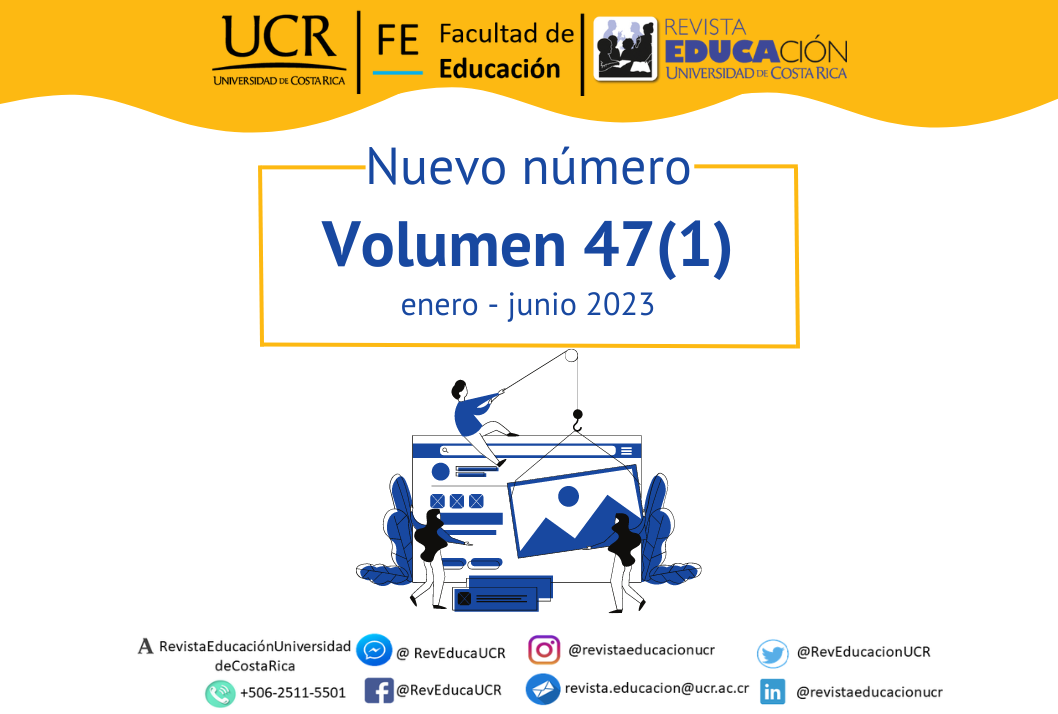Abstract
The general objective was to know the relationship between evaluation, education and creativity in students of the Venustiano Carranza High School of the Autonomous University of Coahuila. The methodology used was: quantitative, which refers to the relative frequency from the instrument that contains numerical variables to process them using statistical methods; qualitative, which is reflected in the integration of inputs and contributions from each axis of research; transactional, since it is an investigation that collects data at a single moment; expository, since it describes and explains what underlies the phenomenon and correlational and integrational, by defining the existing relationships and denoting the relevance between the factors of the phenomenon under study, for such reasons, it is oriented to the original development since it highlights referent underlying structures to the themes. The answers were reached with a numerical type instrument made up of 158 variables on a centesimal ratio scale. The sample was made up of 150 subjects, for which a non-probabilistic sample was used using the convenience strategy. The data analysis were: frequencies and percentages, characterization, correlation, comparison and integration. The main findings were developed through factorial statistical processing from which the proposed paradigm emerges, which indicates that evaluation has a fundamental role in training, which is necessary to plan comprehensively, taking care to promote quantitative and qualitative aspects, since they seek to strengthen the educational quality, as well as the authenticity of the being, and with this, full development of the individual is shown in extracurricular activities that impact the quality of life and the environment. The outstanding conclusions indicate that education in virtual mode is the central axis by which the students exploit their creative abilities to the maximum splendor, in addition, the fulfillment of the student's academic goals lies in the application of quantitative evaluations, which will be a key pillar to promote responsible behavior, finally, the diversity of pedagogical approaches in curricular design contributes to the transformation of the productive field, based on educational processes that trigger attitudes of reflection.
References
Arias, R., Reyna, M., Díaz, C., Alvarado., R., Arroyo, P. y Macías, M. (2021). Actividades extracurriculares y su relación con el estilo de vida de los estudiantes de enfermería. Lux Médica, 17(49). https://doi.org/10.33064/49lm20223267
Camilloni, A. (2018). Las funciones de la evaluación. [Curso de Docencia Universitaria]. Módulo 4: Programas de Enseñanza y Evaluación de Aprendizajes. https://studylib.es/doc/6518571/camilloni.-las-funciones-de-la-evaluaci%C3%B3n
Conde, F., Arroyo, M. y Aniceto, P. (2022). Análisis del concepto evaluación educativa mediante cartografía conceptual, camino hacia la calidad. Ciencia Latina Revista Científica Multidisciplinar, 6(1). https://doi.org/10.37811/cl_rcm.v6i1.1694
Fernández, A. y Balonas, S. (2021). La creatividad en la enseñanza como factor de aproximación de la universidad a los desafíos sociales. Icono 14, 19(2), 11-35. https://doi.org/10.7195/ri14.v19i2.1754
Hernández, R., Fernández, C. y Baptista, P. (2014). Metodología de la Investigación. (6ta edición). Mc Graw Hill. https://www.uca.ac.cr/wp-content/uploads/2017/10/Investigacion.pdf
Llontop, E. y Gonzáles, W. (2021). La creatividad en los Estudiantes: una Revisión Sistemática. Polo del Conocimiento 6(10), https://polodelconocimiento.com/ojs/index.php/es/article/view/3213 http://dx.doi.org/10.23857/pc.v6i10.3213
Mejía-Rodríguez, D. L. y Mejía-Leguía, E. J. (2021). Evaluación y calidad educativa: Avances, limitaciones y retos actuales. Revista Electrónica Educare, 25(3), 702-715. https://dx.doi.org/10.15359/ree.25-3.38
Noriega, N. y Sánchez, A. (2019). Relación entre los estilos de aprendizaje y el proceso de evaluación en la educación básica primaria [Tesis de maestría]. Universidad de la Costa, Barranquilla, Colombia. https://core.ac.uk/download/pdf/269026564.pdf
Roa, J. (2021). La educación superior y el COVID-19: Experiencias desde mi perspectiva como docente. Revista Multi-ensayos, 7(13). https://www.camjol.info/index.php/multiensayos/article/view/10749
Saavedra, N., Vásquez, G., Vásquez, M., Vílchez, C. y Ucharima, E. (2021). Educación virtual en la satisfacción en estudiantes de una institución educativa secundaria de Ayacucho, 2021. Ciencia Latina Revista Multidisciplinar 5(6) 1-15. https://doi.org/10.37811/cl_rcm.v5i6.1206
Sandoval-Rubilar, P., Maldonado-Fuentes, A. C. y Tapia-Ladino, M. (2022). Evaluación educativa de los aprendizajes: Conceptualizaciones básicas de un lenguaje profesional para su comprensión. Páginas de Educación, 15(1), 49-75. https://doi.org/10.22235/pe.v15i1.2638 http://www.scielo.edu.uy/pdf/pe/v15n1/1688-7468-pe-15-01-49.pdf
Stufflebeam, D. y Shinkfield, A. (1987). Evaluación sistemática. Guía teórica y práctica. Paidos/MEC. https://www.studocu.com/es-mx/document/universidad-pedagogica-nacional-mexico/planeacion-y-evaluacion-educativa/stufflebeam-daniel-y-shinkfield-anthony-evaluacion-sistematica-pdf/26779520
Torres, J., Chávez, H. y Cadenillas, V. (2021). Evaluación formativa: una mirada desde sus diversas estrategias en educación básica regular. Revista Innova Educación, 3(2), 386-400. https://doi.org/10.35622/j.rie.2021.02.007
##plugins.facebook.comentarios##

This work is licensed under a Creative Commons Attribution-NonCommercial-NoDerivatives 3.0 Unported License.
Copyright (c) 2023 Revista Educación - Journal of Education



